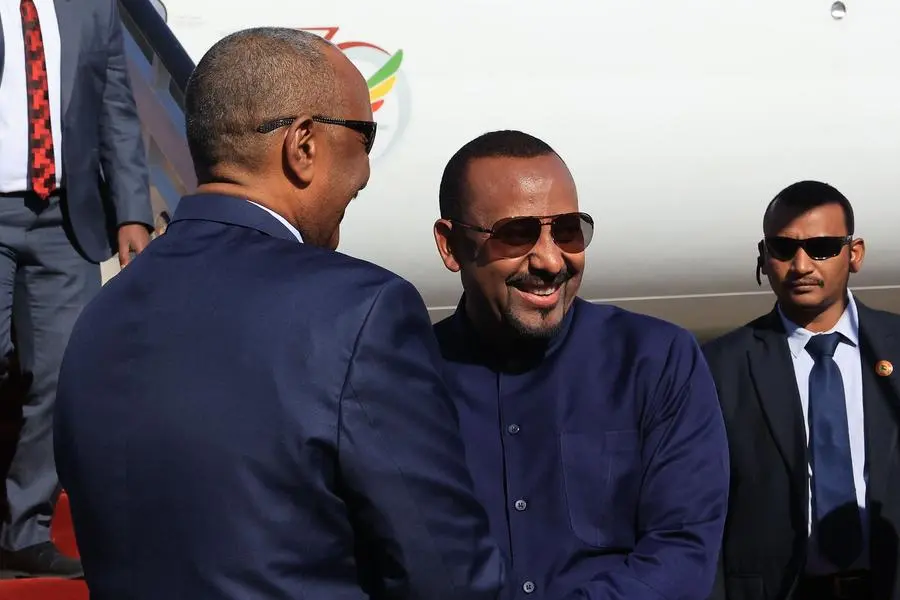PHOTO
Ethiopian Prime Minister Abiy Ahmed visited neighbouring Sudan on Thursday for meetings with army chief Abdel Fattah al-Burhan, his first visit to Khartoum since a 2021 military coup.
Relations between Khartoum and Addis Ababa have been fraught with tensions in recent years, including over a border dispute and refugees from the two-year conflict in Ethiopia's northern Tigray region.
Sudan's ruling sovereign council said in a statement that Burhan and Abiy held talks on "ways to strengthen and enhance bilateral relations".
Abiy and Burhan met in Ethiopia in October, but Abiy last visited Sudan in August 2020, during the transitional government of former prime minister Abdalla Hamdok.
Tensions heightened between Khartoum and Addis Ababa following the conflict which broke out in November 2020 between Ethiopia's federal government and the Tigray People's Liberation Front (TPLF).
Fighting drove tens of thousands of people to seek refuge in Sudan.
In November, Ethiopia's government signed a peace deal with the TPLF to end the two-year war which has killed as many as 500,000 people according to the United States, and triggered a deep humanitarian crisis.
Relations between Sudan and Ethiopia have also soured in recent years over Al-Fashaqa, a fertile border strip long cultivated by Ethiopian farmers but claimed by Sudan, which has sparked sporadic deadly clashes.
It has fed into wider tensions over land and water, particularly stoked by Ethiopia's mega-dam on the Blue Nile.
Sudan and Egypt, both downstream Nile nations, have been opposed to the Grand Ethiopian Renaissance Dam and pushed for an agreement on the filling of its reservoir and the dam's operations.
In February 2022, Khartoum and Cairo slammed Addis Ababa for unilaterally deciding to start power generation at the dam.
It was not clear whether the border dispute or dam discussions were on the agenda.
Sudan's sovereign council said Abiy will also meet with Sudanese political factions.
Deepening unrest has gripped Sudan since Burhan's coup, which upended a transition to civilian rule installed following the 2019 ouster of longtime president Omar al-Bashir.
In December, Sudanese military and civilian leaders signed an initial peace deal as part of a two-phase political process.





















